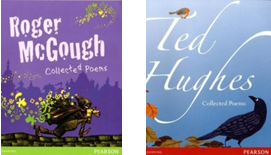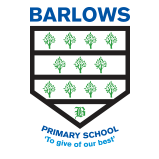Curriculum
Our English Curriculum
English
The aim for English in the National Curriculum is to promote high standards of language and literacy by equipping pupils with a strong understanding of the spoken and written language, and to develop their love of literature through widespread reading for enjoyment.
We follow the Wordsmith scheme of work published by Pearson. Wordsmith was written specifically for the 2014 Primary English curriculum and covers all of the objectives. Each term, children study a fiction, non-fiction, poetry and a ‘live’ unit of work. Within each unit, there is a balance of comprehension, speaking and listening, grammar, spelling and extended writing opportunities. Pupils have the opportunity to write for a range of contexts, purposes and audiences.
When studying a fiction unit, children have the opportunity to read a whole book. The books, which have been written by award winning authors such as Michael Morpurgo, are engaging, thought-provoking and provide an excellent model for pupils to develop their own writing.
Examples of fiction texts covered Year 1 – Year 6:

The non-fiction units are delivered through interactive eBooks. As pupils move from screen to screen, information is delivered through a combination of written extracts and short film clips. Pupils have the opportunity to write for a variety of purposes. These range from an explanation on who killed Tutankhamen in Year 3 to a report on animal migration in Year 5.
Throughout key stage 2, pupils study the work of a variety of poets. They become familiar with the work of two poets each year and use this as a model to develop their own poetic style.
Examples of poets covered from Key Stage 1- Key Stage 2:

The ‘Live’ units of Wordsmith give pupils the opportunity to develop their spoken language. Within each unit of work, they are given a real life purpose to perform to an audience. These range from performing a rap, producing a podcast to creating the script for a guided tour. Pupils develop their evaluative skills by reviewing the final work of their classmates.
A whole school overview of Wordsmith can be found by following the link below:
Reading
We follow the National Curriculum for English to ensure all children:
* develop a love of books
* read a wide range of texts
* read with fluency, accuracy and understanding
* use their knowledge of words, sentences and texts to understand and respond to meaning
* increase their ability to read challenging and lengthy texts independently
* reflect on the meaning of texts
Pupils have many opportunities to develop their word reading and comprehension skills. In addition to our Wordsmith scheme of work, children develop reading skills through Guided Reading, whole class readers, their individual reading book, the school library, and where necessary phonics/ reading interventions.
Phonics
We aim to deliver high quality teaching to enable pupils to read fluently and automatically, allowing them to concentrate on the meaning of the text. Pupils begin their phonics journey following the Letters and Sounds programme phases 1-4. This is followed by the Liverpool Phonics Plans which are taught in Key Stage 1. Pupils from Reception – Year 2 are grouped within their year groups according to their phonic ability and receive a structured daily programme lasting for approximately 20 minutes.
Guided Reading
We use the Rigby Star guided reading scheme from Reception – Year 6. Guided Reading sessions are delivered daily and create opportunities for pupils to apply the reading strategies they have learnt to a new text. The pupils are grouped according to their ability and are set appropriate tasks related to the text.
Class Readers
Every class is allocated whole class reading time each day. The texts read by the teacher are high quality and are from a wide range of authors, both traditional and contemporary. Through listening to their teacher read, pupils have access to texts that they may not be able to tackle independently. They are encouraged to contribute to discussions, offer predictions, express opinions and discuss vocabulary throughout the reading session. We hope that through access to these texts, pupils will develop a love of reading and further develop their vocabulary.
School Library
In 2018, we started the ‘Bike-a-thon’ which raised over £1000 for new books. Using the money raised, plus money from the school’s own budget, we have established a library which currently has over 1000 books. We stock a wide range of children’s fiction texts by popular authors as well as a range of non-fiction, picture books and poetry books.
